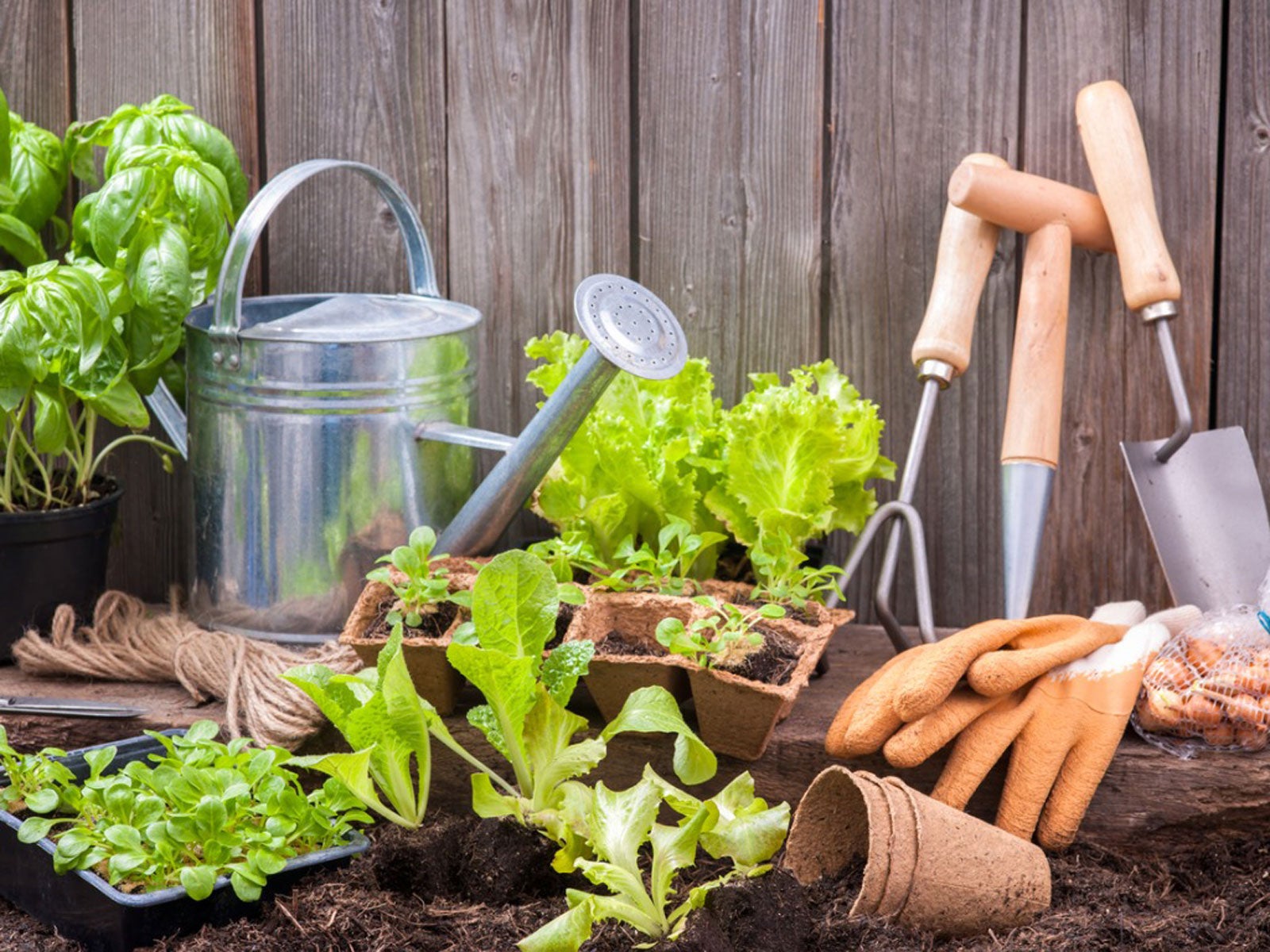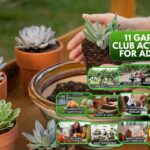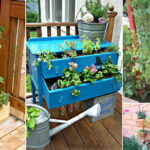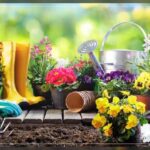Gardening is an art, a science, and a profound way to connect with nature. It serves not only as a means for sustenance but also as a therapeutic endeavor that fosters creativity and mindfulness. For beginners, the journey into gardening can appear daunting; however, a plethora of resources exists to ease this entry and cultivate not just plants, but knowledge and resilience. This article seeks to illuminate various avenues one can pursue to learn about gardening, providing a comprehensive overview of educational materials, institutions, and community-driven initiatives.
The importance of understanding gardening transcends mere horticultural techniques; it embodies principles of sustainability, ecological awareness, and personal empowerment. In the spirit of community engagement, individuals can find resources that resonate with their unique interests and needs.
For those embarking on this verdant journey, the following sections will detail where to learn about gardening, from books and online courses to local workshops and community gardens.
Academic Literature and Essential Texts
Books form the cornerstone of gardening knowledge, serving as trusted companions for novices and seasoned horticulturists alike. Numerous texts delve into the intricacies of botanical science, sustainable practices, and practical techniques, providing a robust foundation for understanding the myriad aspects of gardening.
Classic gardening texts, such as “The Vegetable Gardener’s Bible” by Edward C. Smith or “Rodale’s Ultimate Encyclopedia of Organic Gardening,” offer comprehensive insights into plant care, soil health, and pest management. These works embody not only practical wisdom but also a philosophical approach to gardening, emphasizing the significance of harmony with the environment.
In addition to foundational texts, specialized literature exists to cater to specific gardening interests. For instance, “Vertical Gardening: Grow Up, Not Out, for More Vegetables and Flowers in Much Less Space” by Derek Fell targets urban gardeners who navigate limited space. Academic journals, such as the “Journal of Organic Agriculture,” provide peer-reviewed research that can deepen one’s understanding of botanical sciences and sustainable practices.
Online Platforms and Educational Courses
The digital landscape has revolutionized access to gardening education, providing a diverse range of online platforms. Websites such as the National Gardening Association and The Royal Horticultural Society offer free resources, including articles, how-to guides, and interactive forums where beginners can connect with seasoned gardeners.
Online courses have gained popularity, catering to diverse learning preferences. Platforms such as Coursera and Udemy provide comprehensive gardening courses covering topics from permaculture principles to advanced botany. These courses blend visual content with detailed instruction, allowing learners to engage with the material at their own pace.
Furthermore, instructional videos on YouTube can serve as a highly engaging educational resource. Channels like “Gardener’s World” and “Epic Gardening” present practical advice through vivid demonstrations. This visual medium caters to the kinesthetic learner, fortifying the understanding of complex techniques.
Community Involvement and Practical Learning
Engaging in community gardening initiatives not only fosters hands-on experience but also builds social connections and enhances local biodiversity. Community gardens often serve as informal classrooms, where individuals can learn from one another’s experiences and share insights. These gardens have become hubs of knowledge, where local horticulturists offer workshops on various topics, including organic gardening, propagation techniques, and composting methods.
Local extension services play a pivotal role in gardening education, often providing classes, seminars, and demonstrations. These institutions, affiliated with universities, produce publications that address regional gardening challenges and offer resources tailored to local climates. Participating in extension events can link beginners with expert advice while promoting community engagement.
Online local forums, such as those found on platforms like Meetup, enable individuals to find gardening groups that share their interests. These gatherings can take the form of seed swaps, plant sales, or garden tours, providing opportunities to learn through observation and participation.
Environmental Non-Profits and Workshops
Numerous organizations dedicate themselves to promoting environmental stewardship through gardening education. Non-profit entities such as the Green Thumb Alliance or The Edible Schoolyard Project promote awareness around organic practices while empowering individuals to cultivate their sustenance.
Workshops organized by these non-profits cover an array of topics, including soil health management, insect biodiversity, and the integration of native plants. These interactive sessions foster community spirit and encourage sharing of personal gardening stories, creating a tapestry of knowledge that enriches the gardening experience.
Libraries and Horticultural Societies
Libraries serve as underutilized resources for aspiring gardeners. Many public libraries hold extensive collections of gardening books, magazines, and DVDs, often curating educational programs and workshops. Library events may feature guest speakers with expertise in different gardening disciplines. Additionally, many libraries partner with local gardening experts to provide hands-on tutorials and demonstrations for patrons.
Horticultural societies and clubs are invaluable resources as well. By joining these organizations, individuals gain access to a network of seasoned gardeners and enthusiasts who are eager to share their knowledge. Monthly meetings often feature speakers on current horticultural topics and organized field trips to local botanical gardens or floral exhibitions.
Investigating Local Botanical Gardens
Botanical gardens offer a wealth of resources for learning about diverse plant species, sustainable gardening practices, and horticultural techniques. Many botanical gardens feature educational programs designed for various skill levels, from children to adults. Workshops frequently cover topics such as plant identification, pollinator-friendly gardening, and landscape design.
Events such as plant sales, seasonal festivals, and lectures hosted by botanical gardens aim to foster community engagement and appreciation for flora. These gatherings allow individuals to immerse themselves in the world of gardening and draw inspiration from the beauty and diversity of plant life.
The Role of Social Media
In an increasingly digital age, social media platforms provide fertile ground for the exchange of gardening knowledge. Communities have burgeoned on platforms like Instagram, Pinterest, and Facebook, where gardeners, ranging from novices to experts, share tips, photographs, and videos of their horticultural endeavors.
Hashtags such as #gardeningtips and #urbanfarming have created a collective space for individuals to seek advice and inspiration. Social media can connect people with local gardening initiatives, marking an opportunity for individuals to engage with their community and discover workshops or events that align with their interests.
Conclusion: The Journey Awaits
In essence, gardening is a multifaceted pursuit that enriches the mind and soul. For beginners venturing into this rewarding realm, an abundance of resources exist, each offering unique insights into the art of cultivating life. Whether through literature, online courses, community involvement, or social media, aspiring gardeners can find the knowledge and support they need to embark on their gardening journey. As one cultivates their garden, they cultivate themselves, growing alongside the plants they nurture, fostering a connection that transcends time and space.









Leave a Comment